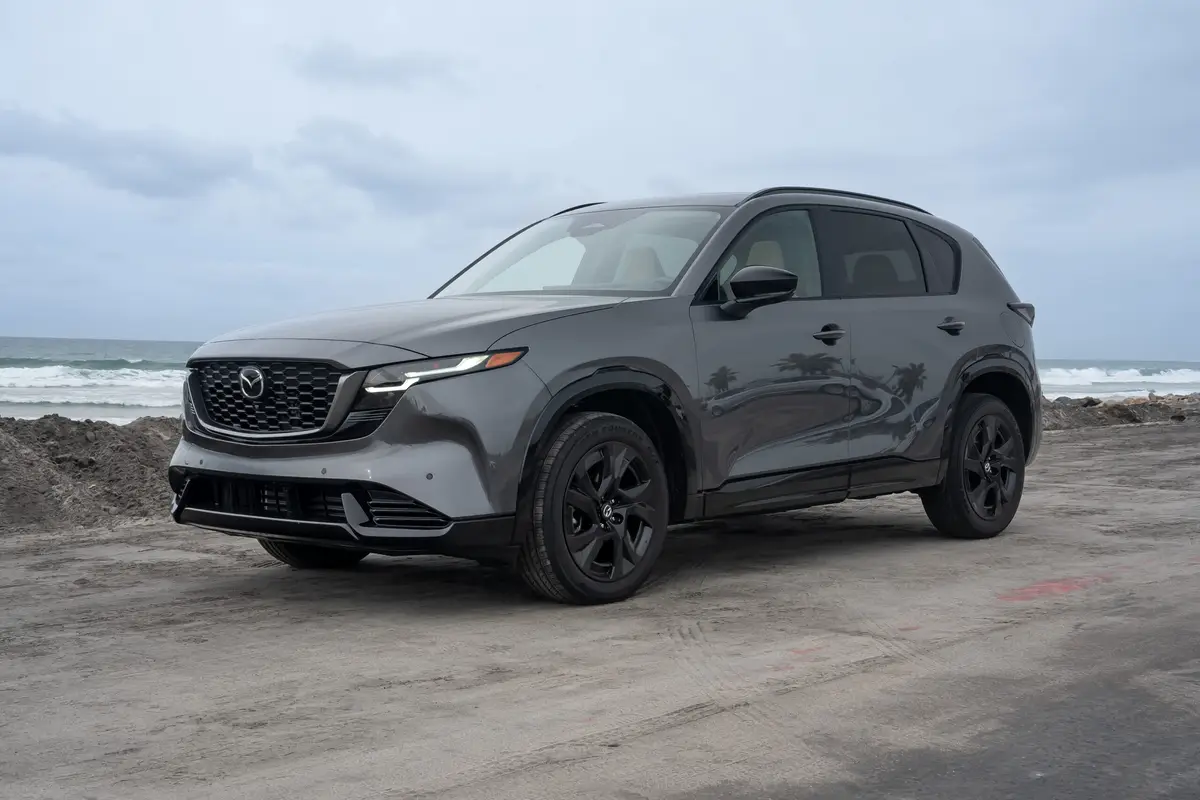washingtonpost.com's view
The 2001 Dodge Stratus ES sedan is a mixture of Walter Mitty and Bill Cosby. Its low-slung, sporty exterior says “hot dude.” But its conservative interior design, overall utility and pricing say “Dad.”
Viewed as a woman, the car is a combination of Britney Spears and Martha Stewart — all flash and pretense on the outside, the essence of celebrity in search of talent. But the glitter, in this case, is supported by something of tangible value — a real mid-size family car, solidly built and well engineered, and now competitive with any automobile in its class.
This was not always the case.
The former Chrysler Corp. introduced the Stratus as a 1995 addition to its “weather series” sedans, the Chrysler Cirrus and Plymouth Breeze. They were good-looking cars but were as ethereal as their names in terms of overall quality and highway performance.
Plastic parts frequently divorced themselves from those early cars, giving them a feeling of cheapness. It was like walking into a house with an attractive facade, only to find that the curtains were hung poorly and the bathroom fixtures were loose.
Performance was equally disappointing. The four-cylinder engines in those first-generation cars were wheezy, whiny things that made life miserable on highways such as U.S. 1 — particularly those twisty, elevated portions along the California coastline. After several trips in those models, I vowed never to drive another one again.
I’m happy I broke that vow.
“All new” is an overused term in product marketing, but it is credible in the case of the 2001 Stratus ES sedan. This is a much better car than its predecessor.
Start with the basics. Most of us don’t give a pahooty about multilink suspensions and 0-to-60-mph times as long as the car we’re driving looks and feels good inside and out. The new Stratus does both.
All of the test car’s visible components fit perfectly. The doors, which now have fewer openings for wiring harnesses, felt solid, as opposed to that tinny feel of doors in predecessor models.
DaimlerChrysler AG, the maker of Mercedes-Benz cars and trucks, which now owns Chrysler, took pains to improve the overall structural stiffness of the new Stratus. The result is a car that has moved from second-class workmanship to rival the Toyota Camry and Honda Accord sedans in terms of body integrity.
Highway performance is better, thanks largely to DaimlerChrysler’s use of a 200-horsepower, 24-valve V-6 in the new Stratus ES. That engine, in terms of both design and power, marks a big step up from the noisy, inadequate 2.5-liter, 163-horsepower V-6 installed in the Dodge Avenger coupe — an unfortunate piece of work built on the Stratus platform.
DaimlerChrysler has dumped the Avenger in favor of what is now called the Stratus R/T coupe, the two-door sibling of the new Stratus sedan.
The automaker’s stated objective here was to build a front- wheel-drive, mid-size family car that makes “a bold statement in an otherwise bland middle-car segment.”
Translation: Give family-car buyers a practical car at an affordable price, but also satisfy their need for romantic fantasy and sex appeal.
That also was Chrysler Corp.’s mission when it put the first Stratus on the market five years ago. The difference this time is that the new Stratus not only makes a statement, it also comes with the wherewithal, including a long list of standard equipment, to back it up.
Nuts & Bolts
2001 Dodge Stratus ES Complaints: Nothing went wrong, fell apart or manifested itself as an obvious defect during my week in the tested Stratus ES. Assuming that retail models mirror the same quality, the car should be okay. I can’t say the same for the Stratus’s overall reputation, as the model has suffered from shoddy quality in the past.
Praise: This is a good, decent, well-executed family car that should be on the list of everyone shopping for a mid-size sedan.
Head-turning quotient: The test car drew lots of favorable attention on the street. It proves that “mainstream” does not have to be boring.
Ride, acceleration and handling: Competitive with rivals in all three categories. Nothing to feel ashamed about here.
Engines/transmissions: The Stratus ES sedan is equipped with a 2.7-liter, 24-valve V-6 designed to produce 200 horsepower at 5,800 rpm and 195 pound-feet of torque at 4,200 rpm. The base Stratus SE sedan comes with a 150-horsepower, in-line four-cylinder engine. The test car was equipped with DaimlerChrysler’s optional AutoStick manumatic transmission, which can operate as an automatic or a clutchless manual. A five-speed manual is standard.
Capacities: The Stratus ES seats five people and carries 16 cubic feet of cargo and 16 gallons of regular unleaded fuel (regular unleaded is fine).
Brakes: Power, four-wheel discs. Anti-locks are optional.
Price: Base price is $20,435. Dealer invoice price is $20,435. Price as tested is $21,010, including at $575 destination charge.
Purse-strings note: Compare with Toyota Camry, Honda Accord, Oldsmobile Alero and Intrigue, Chevrolet Malibu, Ford Taurus, Mazda 626, Nissan Maxima, and Volkswagen Passat.
Latest news



